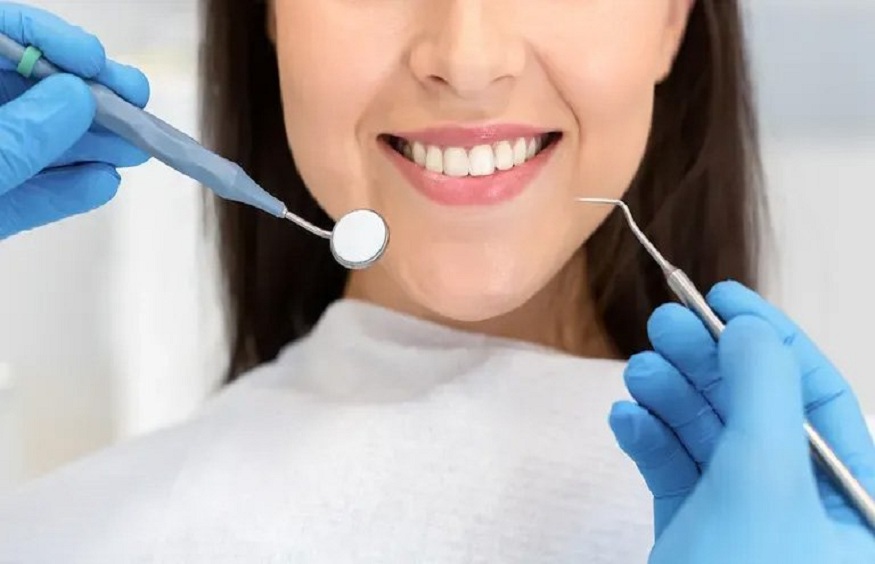Periodontal diseases are infections or inflammatory conditions caused by the bacterial plaque. It can severely affect the soft tissues around the gums and bones supporting your teeth, posing a severe threat to your overall oral health
Several individuals in New Jersey are affected with periodontal diseases. Fortunately, a skilled and experienced dentist in Fort Lee, NJ, can help you get rid of the pain, discomfort, inflammation, and other symptoms associated with periodontal diseases and restore your oral health.
Signs of a periodontal diseases
Not taking good care of your oral health can lead to the accumulation of dental plaque, which can harden to become tartar. The plaque can house various bacteria that can lead to gum diseases and various other oral problems. Following are some common signs of a periodontal disease.
- The patient will experience persistent bad breath regardless of brushing their teeth several times.
- The patient’sPatient’s gums may become swollen, red, tender, and even bleed.
- Patient’s teeth may appear longer due to the gums pulling away from the teeth
- The patient’s teeth may become loose and sensitive to heat, cold, or sweet foods.
- Patients may experience pain and sensation while chewing on the food.
Periodontal treatments
Periodontists can employ different treatment methods to treat periodontal diseases depending on the condition and symptoms of the patient. Nonetheless, the following are some common treatments for periodontal diseases.
Surgical treatment
Usually, the surgeries are needed in more severe cases of periodontal diseases and may require the patient to get sedated. Following are common surgical periodontal procedures.
- Gum grafts: Gum graft surgeries are highly effective in gum recession cases where the tooth roots are exposed due to infection. The surgery intends to cover the exposed parts of the roots and reduce the chances of further recession and bone loss.
- Regenerative procedures: Regenerative procedures may be required in cases where the patient’s jawbone has been depleted due to periodontal infection. The procedure aims at reversing the damage by regenerating the lost bones and surrounding tissues.
- Dental crown lengthening: Some people have a gummy smile because their gums appear larger than their teeth. Under the crown lengthening procedure, the dentist removes the excess gum tissues and some of the bone to make your teeth appear larger when you smile.
- Pocket reduction procedures: A periodontal disease can create deep pockets around your teeth and cause the gums to pull away from the teeth. The deep pockets can house bacteria and further damage the tissues around affected teeth. Your dentist may clean the pockets free of bacteria and fold them back to secure the tissues in place.
Non-surgical treatment
Non-surgical periodontal treatments are suitable in less severe cases as they have limited application.
- Scaling and root planing: Scaling and root planing procedure involves a deep cleaning of areas surrounding your tooth and roots by scaling the gum line to remove plaque and bacteria from the periodontal pockets.
- Laser treatment: Laser treatment can give similar results as scaling and root planing. Lasers of different wavelengths can eliminate the periodontal infection spread in gums, roots of teeth, and jawbones and help you get rid of the symptoms.
- Medications: The dentists may prescribe medications and dental gel for initial-stage periodontitis to prevent the bacterial infection from spreading further.
Recovering from a periodontal treatment
To ensure that you don’t have recurring periodontitis, you must focus on recovery and follow the best practices even after a periodontal procedure.
- Strictly adhere to the post-procedure instructions provided by your dentist to ensure speedy healing.
- Take your medicines on time and use pain medications as recommended by the dentist to minimize the discomfort and pain.
- Take adequate rest after a periodontal procedure to allow your body to heal properly.
- Drink plenty of fluids as it’ll keep your mouth clean, reduce swelling, and help you heal quickly.
- Avoid foods and drinks that are acidic, hard to chew, or spicy, as they can irritate your mouth and slow down your recovery.
- Apart from medications, ensure good oral hygiene once your gums heal completely, like brushing twice a day, not consuming tobacco products, and regular dental checkups.
Final takeaway
Periodontal treatments can help you get rid of bad breath, pain, discomfort, swelling, and other irritating symptoms of periodontitis. It’ll also preserve and protect your teeth from further damage. However, it is highly recommended to visit a highly qualified and experienced dentist for periodontal treatment to get the best results.

